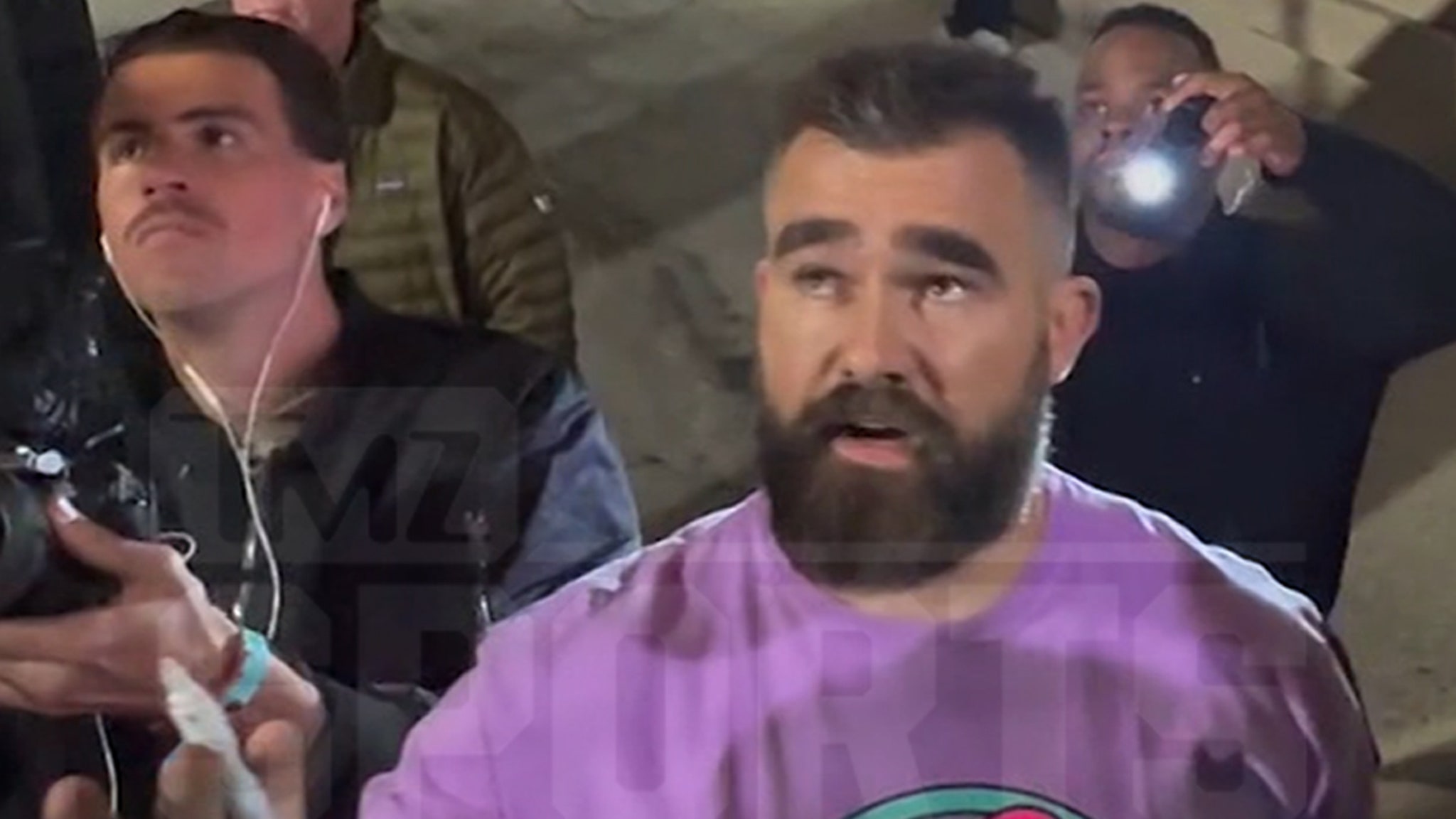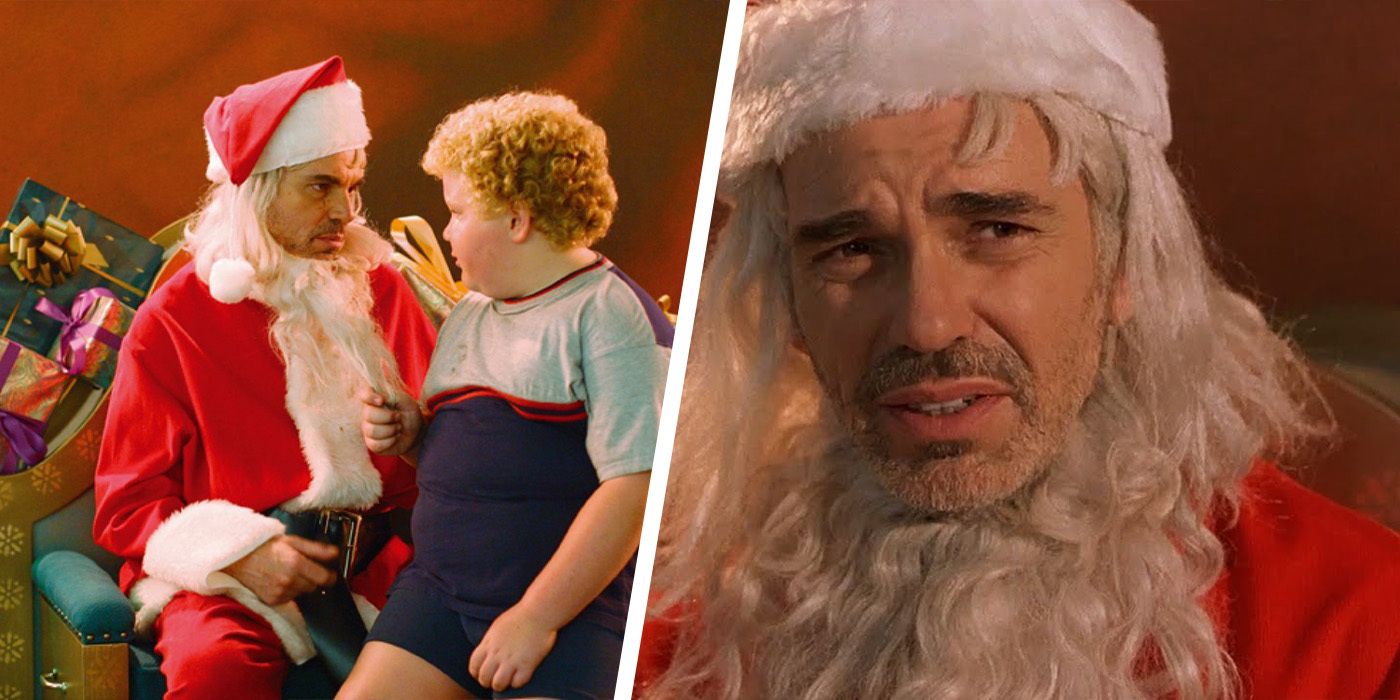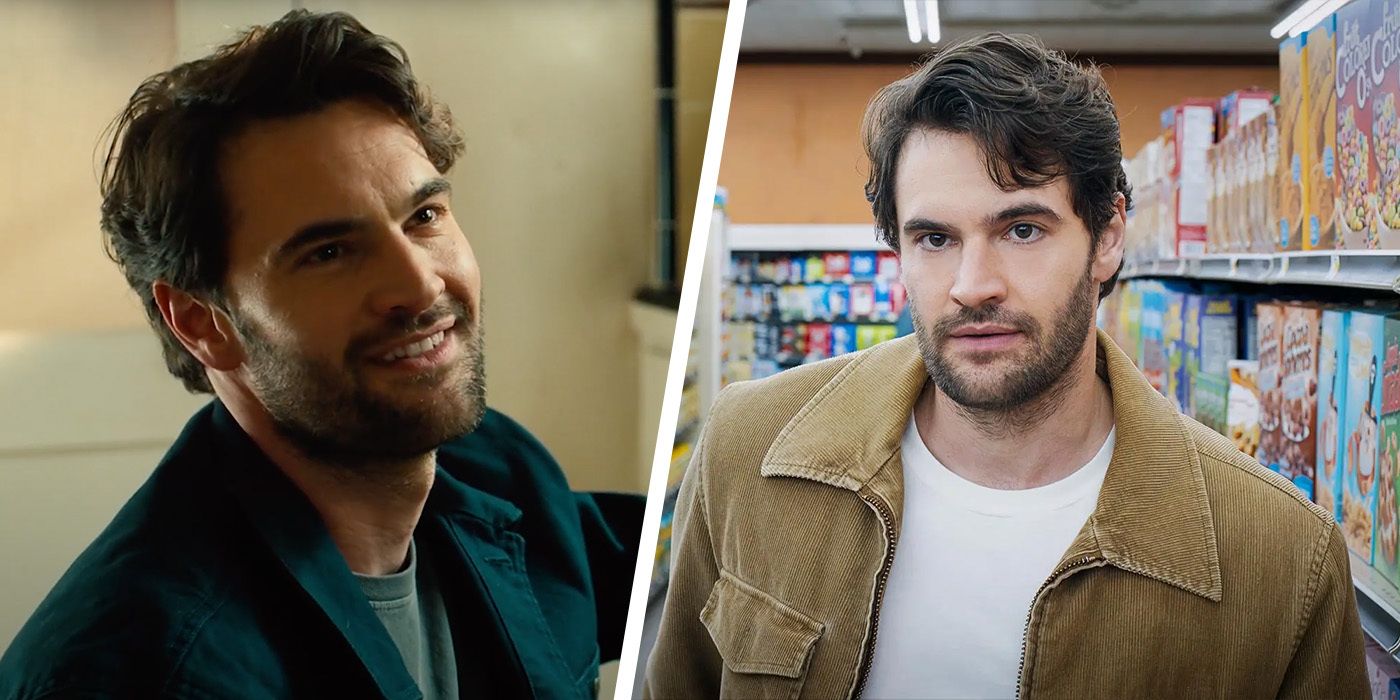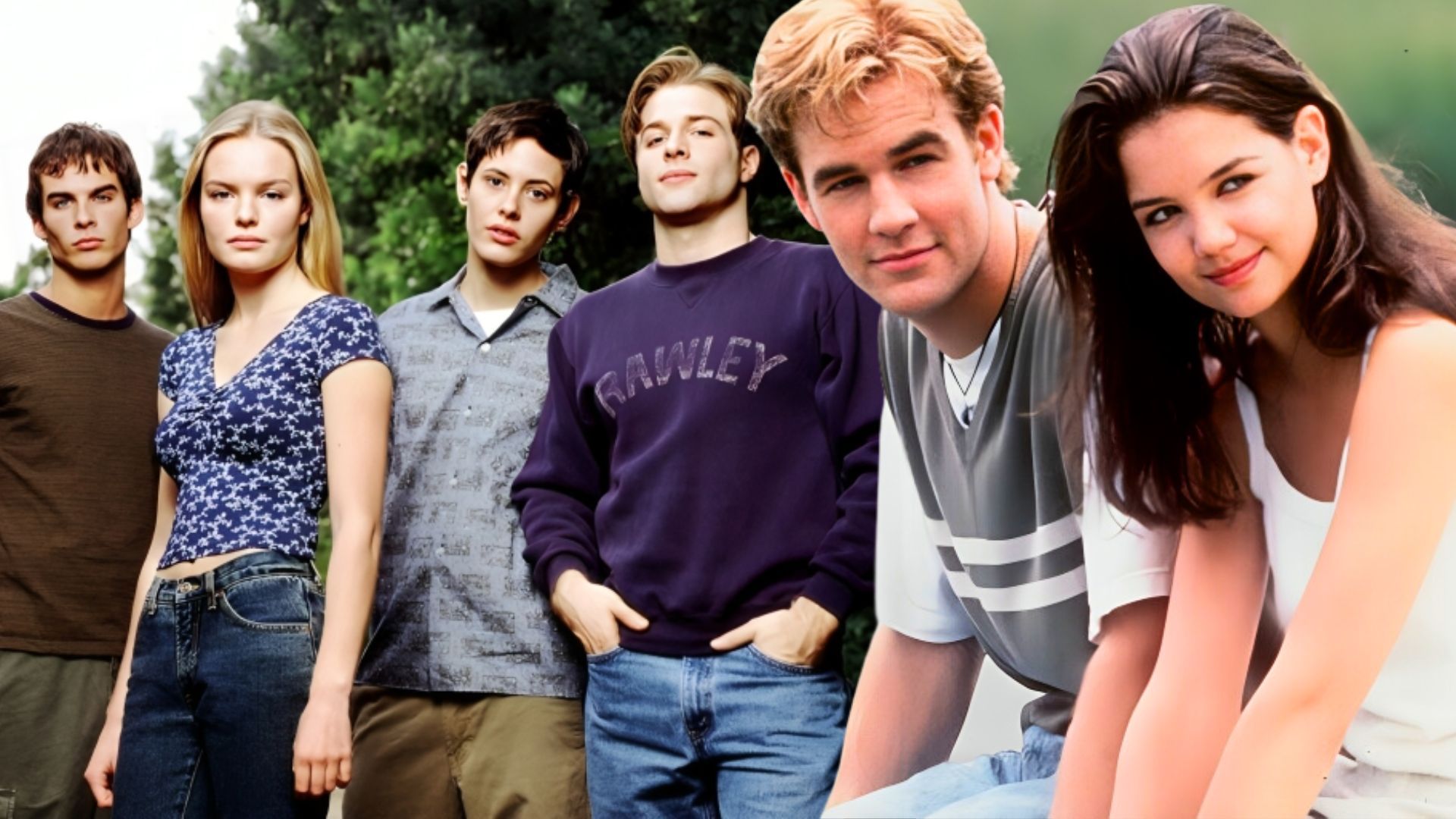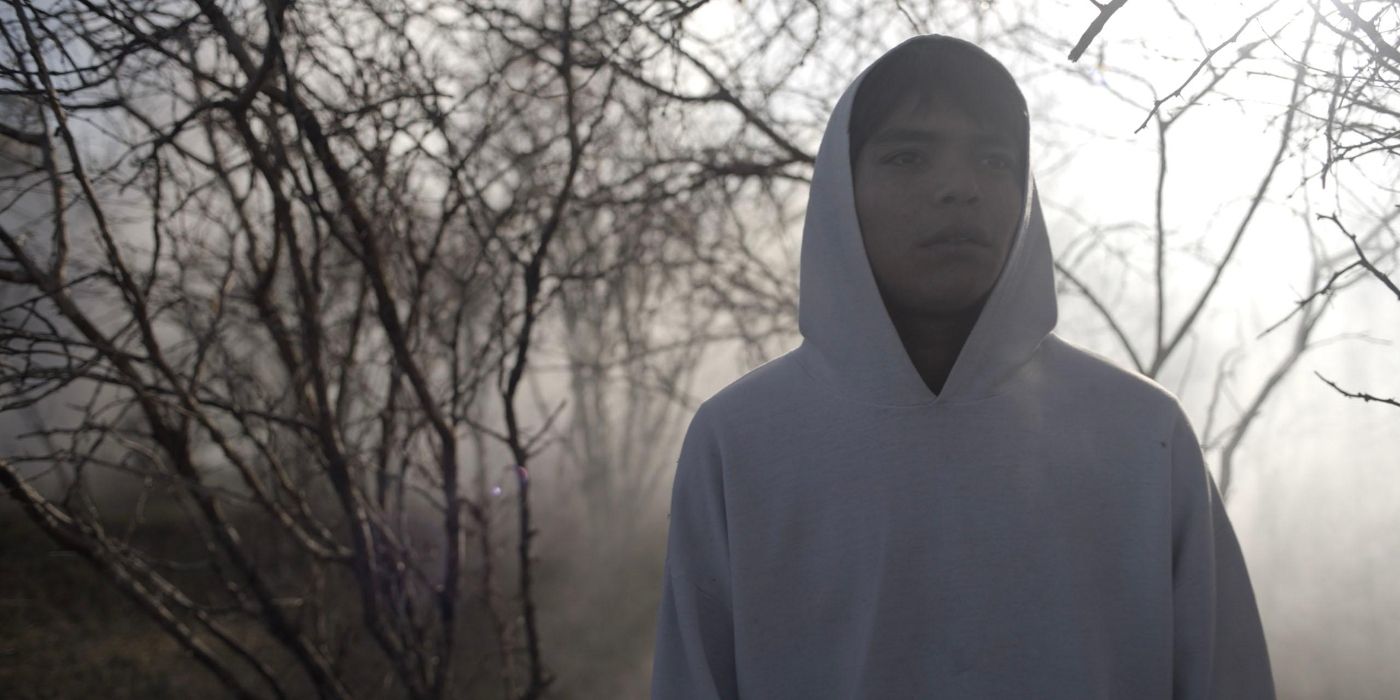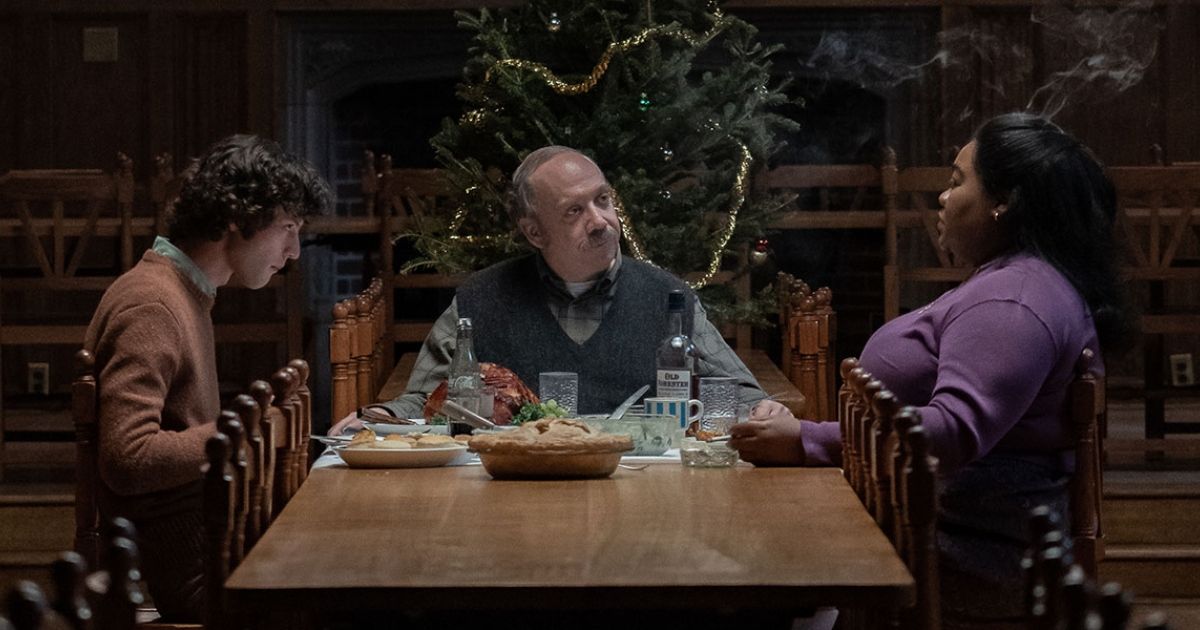The little film that could, Sujo tackles the grand, long-running debate between free will and determinism. The former philosophy asserts that humans possess absolute autonomy over their decisions, while the latter’s position is that we are defined and driven by forces that exist outside our will — essentially, all the events in our lives are predetermined and therefore inevitable.
This idea of being unable to escape one’s fate looms over Sujo, not unlike the fog that creeps over the desert we see in the film, and though it doesn’t offer an outright answer to the debate, its meditation on the matter makes for a gripping coming-of-age drama.
Written and directed by filmmaking duo Astrid Rondero and Fernanda Valadez, Sujo made its premiere at this year’s Sundance Film Festival. It tells the story of four-year-old Sujo (Kevin Aguilar), who is orphaned when his father, Josué (Juan Jesús Varela), a sicario for the local cartel, is killed for betraying the gang. Per cartel rules, male descendants of executed cartel members must also be killed (so that they don’t seek revenge when they grow up).
But Sujo’s Aunt Nemesia (Yadira Pérez) pleads for the young boy’s life to be spared, a wish that is granted on the condition that Sujo is raised elsewhere. As a result, the boy spends his childhood under his aunt’s care — with the help of her lover, Rosalia (Karla Garrido) and her two sons, Jeremy and Jai — in a secluded house in the mountains.
Partway through, the film fast-forwards to when Sujo and his cousins are now young men (Varela returns to play the teenage Sujo, while Jairo Hernández and Alexis Varela play Jeremy and Jai, respectively). Nemesia’s only wish for her nephew is that he avoids the violent path his father took, but, swayed by a mix of teenage rebellion and influence from his cousins, Sujo finds himself becoming a low-ranking cartel member anyway. It isn’t until tragedy strikes close to home that Sujo is forced to re-evaluate who he is, who he has become, and, if it’s even possible at this point, who he wants to be.
Related: Exclusive: Bliss Team Discusses the Film’s 20-Year Journey to the Screen [Slamdance 2024]
Sujo Is a Different Kind of Cartel Movie
Most films of the cartel subgenre primarily focus on telling stories about the “war on drugs,” stringently approaching their narratives from the angle of crime and punishment, and, as a result, often favor action and spectacle over anything else. Sujo, however, isn’t your typical movie about cartels. Soulful and lyrical, Rondero and Valadez’s film stands on the fringes of Sujo’s hometown of Michoacán, somewhere between urban and rural.
In Nemesia’s humble house, one is out of the cartel’s reach. And it’s here that the film dips into magical realism territory, Sujo’s aunt serving as a conduit for the supernatural forces at play (indeed, when Josué dies, his ghost visits her in a vision, and this tells her to find Sujo before the cartel does).
Ximena Amann’s cinematography is striking throughout Sujo, particularly when showing Mexico’s natural landscape. Amann’s camera stalks through the trees and along the rocky hillsides, which, combined with the moments of magical realism, gives Sujo’s childhood home an almost Edenic feel. It’s reminiscent of a culture and people that existed before the threat of the cartels did.
EnAguas Cine
Corpulenta Producciones
Alpha Violet Production
Silent R Management
In a way, this positions the cartel as a mechanism of generational trauma, and, through its young protagonist, the film searches for an answer to the end of the cycle of violence. Which makes the threat of Mexican cartels somewhat less insurmountable — or, at the very least, it doesn’t feel as much of a Sisyphean task to fight against them as a more cynical film like Sicario might suggest.
This isn’t, of course, to say that Sujo takes a naive stance or is any less gritty and violent than the nature of its story requires. Indeed, the film moves like a slow-burn suspense thriller at times, with Rondero and Valadez occasionally pulling back the curtain of the cartel’s violent acts to remind us of who still holds the power in this small town. What’s more, in a stroke of genius on the directors’ part, the moments of violence happen off-screen — but because we hear them from Sujo’s perspective as a scared child, it all feels much darker and more evil.
To Be or Not to Be
4.5 /5
Release Date January 19, 2024
Director Astrid Rondero , Fernanda Valadez
Cast Karla Garrido , Juan Jesús Varela , Jairo Hernandez , Kevin Aguilar
Runtime 2hr 6min
Writers Astrid Rondero , Fernanda Valadez
Studio EnAguas Cine, Corpulenta Producciones, Alpha Violet Production
Pros
- Sujo is an immensely moving and tense character study.
- Sujo skillfully navigates complicated themes of free will and fate.
- The performances and direction are utterly authentic.
Varela previously starred in Rondero and Valadez’s previous film Identifying Features, and it’s clear why they chose to work with the actor again in Sujo. There’s a maturity to his sensitive and weighty performance that goes beyond his years: with a hint of precociousness and even rage, he wears Sujo’s heavy heart on his sleeve. It’s in the film’s last chapter, when Sujo escapes to the big city, that Varela truly shines.
Here, he navigates working odd jobs to support himself and hovers around a school — Susan’s (Sandra Lorenzano) literature class, in particular — all the while finding who he is in this new world. The the excitement and fear in his eyes is palpable, as he faces this unknown.
Related: Best Mexican Movies from the 2010s, Ranked
After a harrowing few chapters with the cartel, Susan’s section of Sujo is almost a relief. Lorenzano is a breath of fresh air, and, as Susan, she’s a no-nonsense, dedicated, and wholly inspiring teacher. In fact, it’s the quiet conversations between them that the film really shines, offering a glimmer of hope. This is, after all, a young man whose childhood was stolen from him and who is now on the precipice of taking back control of his life.
What’s more, Susan immigrated to Mexico from Argentina to escape a bloody dictatorship, so she doesn’t judge Sujo for his past. At once, the two are teacher and pupil, mother and son, and, in a way, refugee and refugee. Certainly, turning one’s life around is easier said than done, especially for a former gang member, and just as Sujo is determined to make the leap — avoiding spoilers here — an obstacle to this new life shows up at his door, threatening to pull him back into the dark.
By this point, Sujo has oscillated back and forth between whether we are in charge of our own destinies. As the last act unfolds, you don’t realize you’ve held your breath in anticipation of the answer — until the final scene cuts to black and, like Sujo, you exhale.
You can view the original article HERE.
